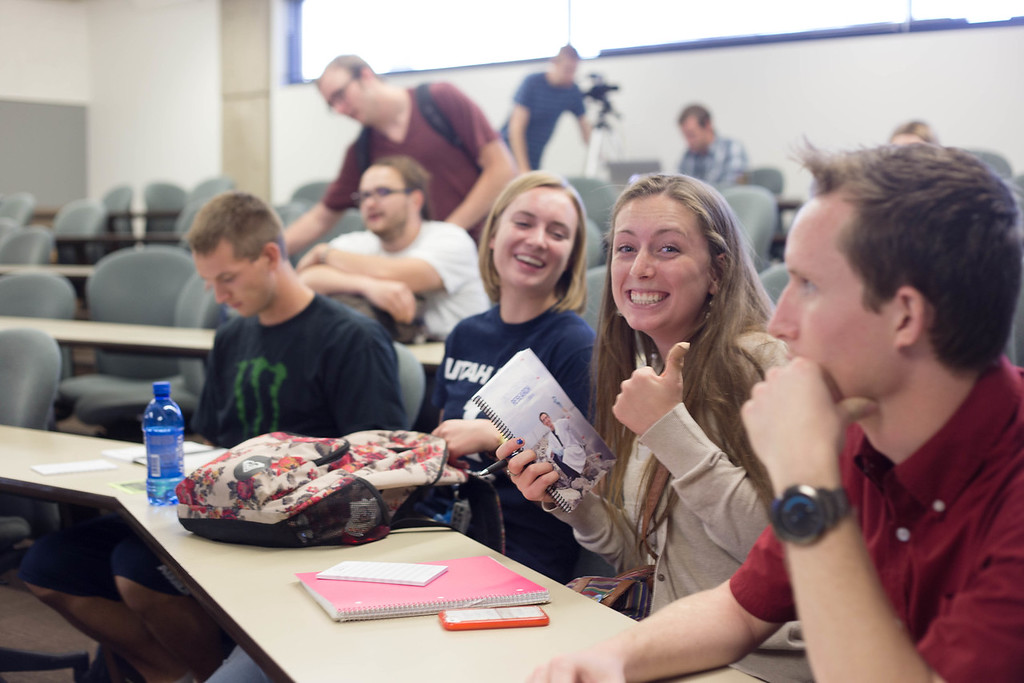Grad School for Undergraduate Researchers
 Many students who participate in UR think about graduate study. Some may be focused on pursuing academic or industry research careers, while others may be looking to the professions (law, medicine, finance, or public service). Whatever your trajectory, your undergraduate research background will strengthen your grad school prospects.
Many students who participate in UR think about graduate study. Some may be focused on pursuing academic or industry research careers, while others may be looking to the professions (law, medicine, finance, or public service). Whatever your trajectory, your undergraduate research background will strengthen your grad school prospects.
Career Services has put together a very helpful timeline and checklist for students thinking about graduate school. Furthermore, their Canvas course has an entire module dedicated to the graduate school prep process, which is worth your time in taking. They also provide support for test prep, coaching on interviewing and preparing your CV, and a host of other resources, including a guide for getting into graduate school which includes advice on writing your personal essay.
From a research-specific perspective, here are some tips:
Talk to your Mentor
Talk to your mentor (and preferably to other faculty in your area) early and often about your grad school thoughts – ask lots of questions, including, “do you know X at the University of Y?” because in grad school as in everything else, personal connections can make a difference.
UR Transcript Designation
Register for the Undergraduate Researcher Transcript designation. This designation signifies that you were actively involved in research at Utah State. It will pump up your academic record and make it clear to admissions committees that you’re serious about research. You can apply for the designation here.
Apply for Awards
Apply for awards even before you’ve been admitted to programs. Some of the big national scholarships that support early-career graduate study, such as the NSF Graduate Research Fellowships, have due dates in October-December. USU’s prestige scholarships are mostly administered through the Honors program, but please feel free to ask the Office of Research and your mentor for help and direction before you commit to this rigorous and time-intensive process.
Leverage your UR Experience
Leverage your UR experience both on your CV and in your personal statement, in conversations you have with potential mentors, and in grad school interviews. This does not mean you should brag or name drop, but it does mean you can tout your very legitimate accomplishments, and contextualize your statements in terms of your experience. For example, you could answer the inevitable, “How do you handle conflict or disappointment” type question with an example drawn from your research life.
Other Resources
The Office of Research
Take advantage of your connection to the Office of Research. We are here to help support undergraduate researchers, and if we’ve gotten to know you through our programs (URCO, URF, Travel Grants, Orientations, SRS, ROCH, and more), we may be able to provide a supplemental letter, or at least give you some pointers and encouragement. Email us at athena.dupont@usu.edu or call at 435.797.3762.
Graduate Student Mentors
If you currently work with graduate students on your research, you already have a contact who has gone through the graduate school process successfully. Feel free to ask them any questions you may have about the entire process. If you don’t currently have a graduate student contact, you can always call the School of Graduate Studies to learn more about the basic requirements.
Pro Tip
A lot of research students get so focused on their research and course work that they miss deadlines and have to wait a year beyond graduation before applying to graduate school. Don’t get caught out! Taking a year off purposefully can be great. Taking one off by accident is just disheartening.

